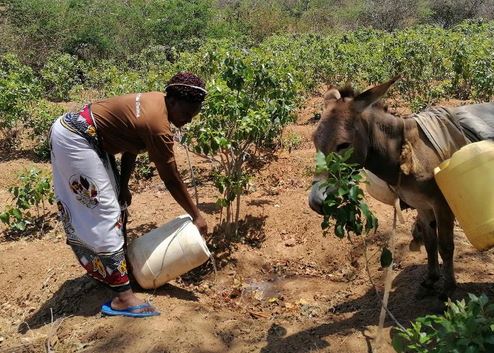×
The Standard e-Paper
Informed Minds Prefer The Standard

Margaret Munyi a khat farmer in Murambare in Embu County [PHOTO: Courtesy]
EMBU, KENYA: In Kenya just like in any other developing nations across the globe, agriculture is one of the most important means of livelihood for many. In communities where smallholder agriculture is practiced, especially in Africa, women form the backbone of agricultural activities including production, transportation, and marketing of agricultural commodities.